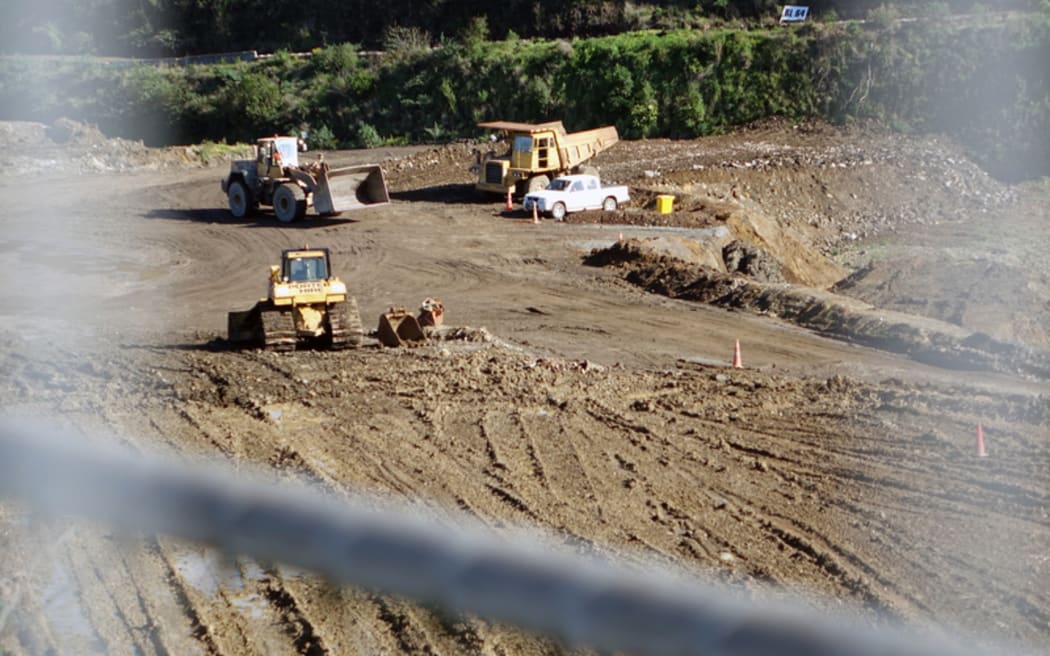Road tolling, better planning and less red tape is needed to ensure enough land is ready for housing in fast-growing centres, a new report says.

Quarry land being cleared for housing in Three Kings in Auckland. Photo: RNZ / Kim Baker Wilson
The Productivity Commission also recommends central and local government work more closely on long-term planning, to ensure infrastructure and amenities are ready when needed.
It has released a draft report, Using Land for Housing, on how to improve the supply of ready-to-use housing land, as a way of keeping land and house prices as low as possible.
It wants regulation trimmed where it adds cost to apartments, such as the requirement for balconies, and minimum numbers of carparks.
The commission advocates wider use of the local body planning process set up for the amalgamated Auckland Council, which spans 30 years and includes transport and infrastructure.
The report said core Crown agencies should begin paying local body rates, which could add $180 million a year to local body coffers.
But it raises the challenge of infrastructure funding - such as for roads and water - in faster-growing areas, and wants more studies on the ability to add rates to properties in areas needing new facilities.
"In some areas infrastructure connections are effectively being rationed," commission chair Murray Sherwin said.
"We've proposed recommendations on how the arrangements for infrastructure provision can be improved, so that the roll-out of pipes can be far more responsive to demand."
Some of the commission's draft recommendations have been overtaken by events, with housing and land supply being the focus on recent initiatives.
It said local and central government should jointly look at surplus land which could be used for housing, a process already under way in Auckland.
The commission's report also calls for long-term agreements between central and local government on transport funding and projects, a move which is about to begin in Auckland.
In Auckland, it argues for greater housing intensification, noting that the provisions in the city's proposed Unitary Plan were watered down soon before going into the hearings stage currently under way.
Policy think-tank The New Zealand Initiative has welcomed the report's focus on how to improve the supply of land for housing.
"Once councils are in a better position to not just release that land but also provide the infrastructure, that'll make it easier for private developers to come in and use that land," executive director Oliver Hartwich said.



